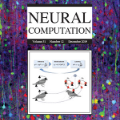神经计算(Neural Computation)期刊传播在理论、建模、计算方面的重要的多学科的研究,在神经科学统计和建设神经启发信息处理系统。这个领域吸引了心理学家、物理学家、计算机科学家、神经科学家和人工智能研究人员,他们致力于研究感知、情感、认知和行为背后的神经系统,以及具有类似能力的人工神经系统。由BRAIN Initiative开发的强大的新实验技术将产生大量复杂的数据集,严谨的统计分析和理论洞察力对于理解这些数据的含义至关重要。及时的、简短的交流、完整的研究文章以及对该领域进展的评论,涵盖了神经计算的所有方面。
官网地址:http://dblp.uni-trier.de/db/journals/neco/
精品内容
没有数据了, 换个别的吧!

